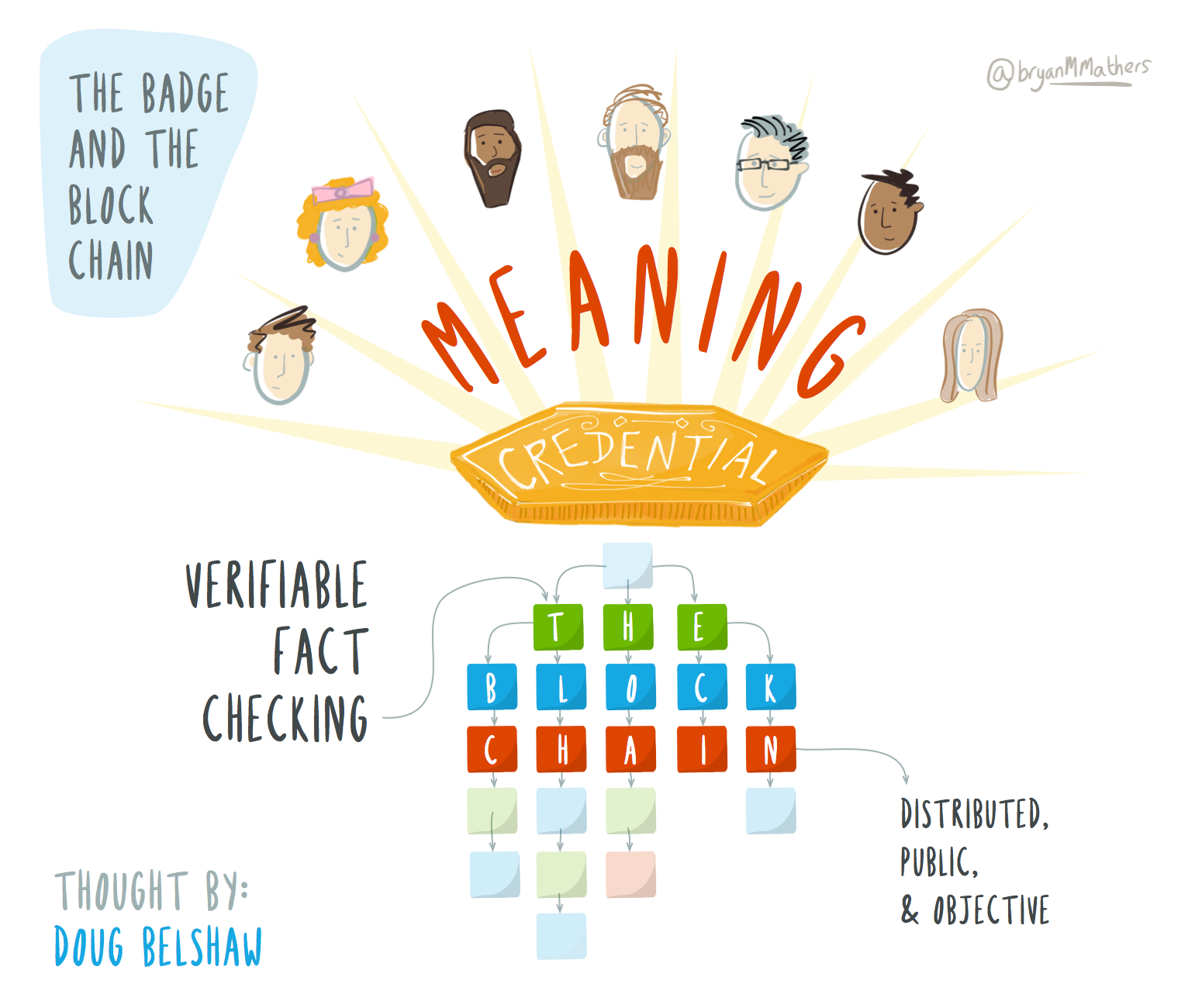A Decentralized System for Education and Assessment
A few months ago I wrote a post for DMLcentral entitled Peering Deep into Future of Educational Credentialing. In it, I was looking at the possibilities of the blockchain technology that underpins Bitcoin.
More recently, I’ve been looking at Ethereum, ‘crypto-fuel’ that can create new, autonomous systems and so I asked on Twitter:
Education via Ethereum: @dajbelshaw @leashless @ethereumproject Worth ten minutes on http://t.co/oNVQR185iz and https://t.co/fF7AuMs9dP
— Gordon Rae (@socialtechno) September 22, 2015
I looked further into the website Gordon suggested: A Decentralized System for Education and Assessment. It’s an interesting, if slightly technocratic and techno-solutionist, read. Here’s a flavour:
The long term goal is the foundation of a fair, just, and meritocratic society, in which individuals, regardless of personal factors, have the freedom to learn and grow with each other, judged solely on individual achievements. The society would function on a ruleset unalterable by any malicious centralized power, categorizing the skillsets of each individual and giving others the information necessary to place those individuals within society. This provides the basis for a society based on action and fact, with each individual serving their best role in the larger whole.
I emailed Jared, the guy behind the site asking how I could help (I’d already submitted a pull request to make a minor update to the site). He replied that the work “is still very preliminary” with the two big decisions currently being:
- What kind of channel to set up for primary communication
- Which platform to build on (Ethereum, Eris Stack, Forking bitcoin or tendermint?, etc)
He’s open to other ideas, too, with the best place to discuss all this on this subreddit. I’ve closed comments here to encourage you to jump into the conversation there.
Image CC BY-NC-SA Bryan Mathers


